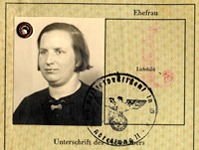Online Seminar: Holocaust and Human Behavior
Using Facing History's principal resource book, Holocaust and Human Behavior, as well as video, primary sources, and presentations by survivors and leading scholars of the Holocaust, participants will experience a rigorous encounter with this powerful history. During the Seminar, a wide range of innovative teaching strategies are used to help teachers confront the Holocaust. At the conclusion of the Seminar, participants leave with a thorough grounding on how to incorporate these teaching tools into their classrooms in ways that will help students connect the history of the Holocaust to the ethical choices they face today. Participants at this Seminar follow Facing History's scope and sequence. The Seminar begins with an exploration of questions of identity in our lives today and then moves to questions of group membership in history. These early sessions lay the foundation for an intensive examination of the steps that led to the Holocaust and the eventual mass murder of millions of Jews and other victims. The Seminar then ask participants to think about questions of judgment and memory, considering who bears responsibility for crimes against humanity and how to confront or memorialize the past. The Seminar concludes by challenging participants to reflect on questions about what it means to participate responsibly in a civil society. Following this Seminar, participants receive complete access to Facing History's Educator Resources, including downloadable unit plans, lessons, and online conversations. In addition, participants are invited to borrow videos, dvds, and books from Facing History's lending library. Finally, each participant is assigned a Facing History Program Associate, who is available to provide ongoing support services.

